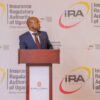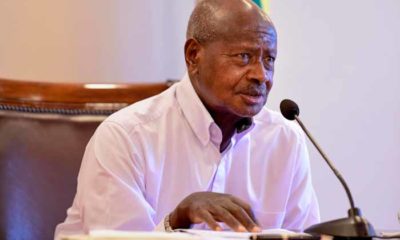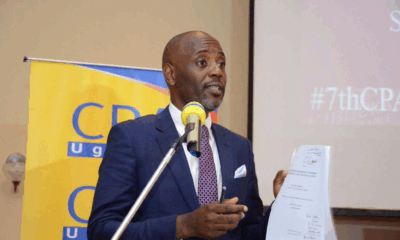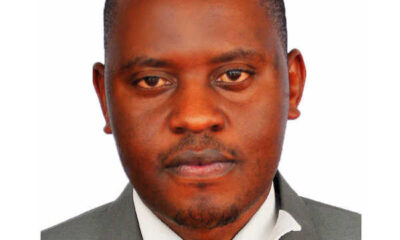News
UGX1.5trillion needed to rescue Uganda’s economy from COVID-19 effects

Patrick Katabazi, Executive Director Centre For Budget and Tax Policy
According to Patrick Katabazi, the Executive Director of The Centre For Budget and Tax Policy the effects of the social distancing limitations have had a disastrous effect especially the informal businesses such as boda boda riders, taxi drivers, vendors and petty traders whose activities have been ground to a halt.
According to Katabazi, the different economic interventions would require at least UGX1.5 trillion if the country to forestall economic collapse and possible social and political unrest.
The Minister of Finance Matia Kasaija is also set to present to Parliament next week the government’s own rescue plan, but he said that he is waiting for input by other stakeholders.
Katabazi’s proposals could feature among those that may be adopted by the government.
Other groups that have made proposals include the Civil Society Budget Advocacy group (CSBAG).
Katabazi notes in a statement that the negative impacts are largely a result of the Presidential directives that suspended all public transport, non food related market activities and petty trade as a way of suppressing the rate of new infections through social distancing, quarantine and the curfew.
According to the statement, close to 4 million Ugandans are stranded with no work.
The other groups affected seriously effected economically by these directives include private sector workers mainly those earning less than 1million shillings a month.
These according to the statement have been left partially redundant by temporary closure of companies and factories and are likely to be affected more if their employers don’t recover from this slow down and close permanently.
In total they number about 800,000 and have been a major contributor to government revenue through taxes especially pay as you earn that reached 2.8 trillion shillings in the 2018/19 financial year.
Uganda’s elderly are also a group that has been adversely affected by this Covid 19 pandemic economically and although up to 200,000 of them have already been on government support, the Centre for Budget and Tax policy estimates that another 1.3 million elder persons have become vulnerable as a result.
Another 500,000 who don’t fall directly in this category but are close also need assistance as they are at a high risk of being adversely affected too.
Public servants in the lower rungs especially the teachers, armed forces and nurses earning less than UGX500,000 per month have not been spared by the lockdown.
Recommendations
The economic think tank is calling for a rescue plan of more that 800 billion shillings to bail out members of the informal sector with each receiving up to UGX50,000 shillings a month.
The statement also points out that the senior citizens grants be expanded to cover all people over 60 years down from 75 years which was the limit and the reach be expanded to cover suburban and urban centres on top of the villages previously covered.
A provision for Vulnerable people who may not make the age limit but are close and need help have also been included bringing the total of those in need to 2 million with an amount of 257.5 billion required to support them.
Grants that previously stood at UGX25000 per older person should be doubled to UGX50,000 shillings monthly too as the dependency on older persons by others is likely to increase during this period.
UGX240 billion shillings is also recommended to support over 800,000 private sector employees with at least 100,000 per month for a 3 months period when they are redundant.
The other group in need of support is the low level civil servants; I.e men and women in the forces, teachers and nurses and these will require 45 billion according to the statement to take home an extra 100000 shillings a month for each of the 150000 affected persons for 3 months. This is geared at helping them meet their basic needs effectively in these uncertain times.
Close to UGX1.5 trillion is required to be released to these groups by government to effectively support them and ensure they don’t fall into extreme poverty or starvation.
Katabazi also recommends the prompt payment of pensions for retired civil servants, a law stopping business owners from hiking prices of foods and other necessities plus urgent payment of domestic debts to government suppliers that topped 3.3 trillion in the financial year 2018/19.
“The above recommendations will go a long way in helping these vulnerable groups comfortably go through this lockdown without facing starvation and having no access to basic necessities while keeping the economy afloat too,” Katabazi concluded.
Comments


























